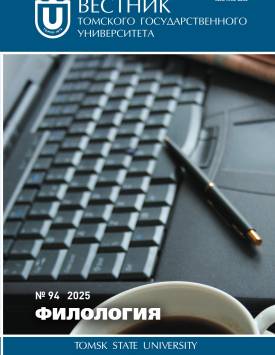"Strong" and "weak" factors influencing partial agreement: A meta-study
This article presents a meta-study of partial agreement in Russian. There are two strategies of agreement with coordinated subjects present in the Russian language, full agreement and partial agreement, with numerous factors influencing the acceptability of each. Partial agreement occurs when the predicate agrees with only one of the conjuncts, while full (or standard) agreement is a strategy that implies agreement with the entire coordinated subject. Some of the factors considered to affect the acceptability of partial agreement include word order, symmetricity of predicate, animacy of conjuncts, and coincidence of conjuncts gender. Researchers traditionally divide the factors into "strong" ones and "weak" ones, with the former completely blocking the possibility of partial agreement and the latter just lowering its acceptability. The division, however, as well as the set of factors themselves, varies from paper to paper. For instance, certain researchers consider SV word order to be a "weak" factor, some claim partial agreement to be completely impossible in sentences with such word order, while others do not consider it a factor at all. To resolve this discord, we attempt to combine the results ofthree experimental studies (Pasko, 2023; Studenikina, 2023; Vrubel, 2023) by applying statistical methods to the acquired data, and thus obtain objective measurement of the effect size of each factor studied in the aforementioned experiments. One of the statistical methods implemented in the presented meta-study was Cohen's d measure (Cohen, 2013) that allows for the comparison of the results of several experimental studies with differences in the number of respondents and stimuli sets. Data analysis with Cohen's d measure has not been previously applied in the experimental studies of Russian syntax. The results of the meta-study have proven word order and coincidence of conjuncts features to be significant factors increasing acceptability of partial agreement. Full agreement, however, remained a more acceptable strategy regardless of any factors. Word order, according to Cohen's d measure, might have the effect size ranging from weak to moderate. Coincidence of the conjuncts gender had a weak effect with the past tense of the predicate and no significant effect in the present tense due to the fact that in Russian gender agreement with subject only occurs in the past tense. Animacy of the conjuncts, as well as symmetricity of predicate had no significant effect in either study. The authors declare no conflicts of interests.
Keywords
meta-study, subject-verb agreement, Russian, coordination, partial agreement, experimental syntaxAuthors
| Name | Organization | |
| Vrubel Diana D. | diana.vrubel@gmail.com | |
| Pasko Lada I. | Lomonosov Moscow State University | paskolada@yandex.ru |
| Studenikina Kseniia A. | Lomonosov Moscow State University | xeanst@gmail.com |
References

"Strong" and "weak" factors influencing partial agreement: A meta-study | Vestnik Tomskogo gosudarstvennogo universiteta. Filologiya – Tomsk State University Journal of Philology. 2025. № 94. DOI: 10.17223/19986645/94/2
